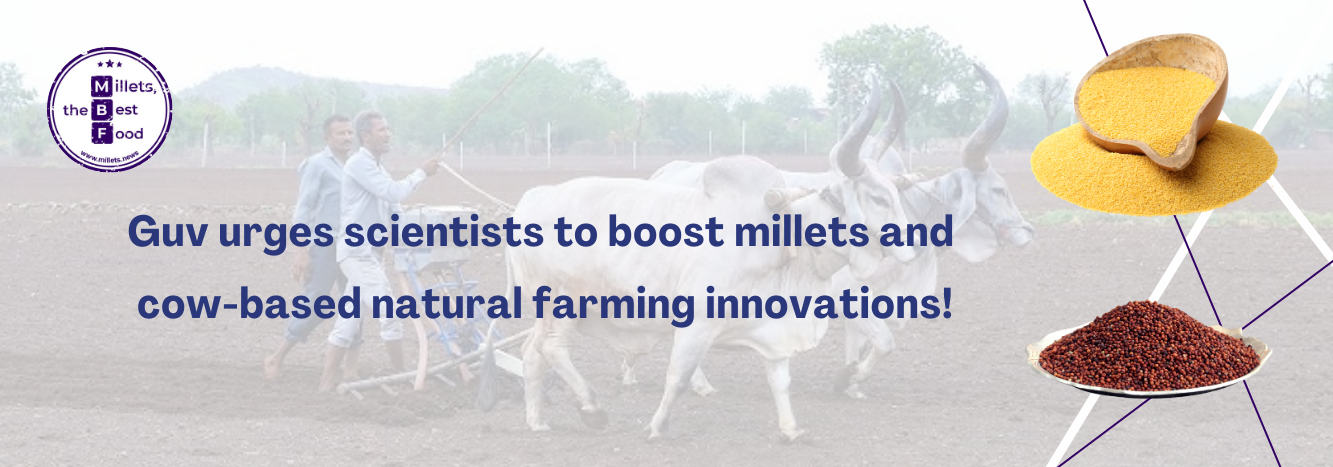
At the 27th convocation of Chandrashekhar Azad University of Agriculture and Technology in Kanpur, Governor and Chancellor Anandiben Patel called upon scientists to intensify research and innovation in millets and cow-based natural farming. Presenting 63 medals and awarding degrees to 649 graduates, she urged students and faculty alike to explore sustainable agricultural practices. Patel emphasized the rising importance of millets as climate-resilient food crops, and encouraged organic farming methods that integrate cow dung, cow urine, and other indigenous techniques to enrich soil health without reliance on synthetic chemicals.
The convocation ceremony also spotlighted the university’s broader role in pushing agricultural transformation. University leaders, including the Vice-Chancellor and director general of ICAR, highlighted successful research in pulses, oilseeds, and diverse food grains. Over 300 varieties have been developed, showcasing the institution’s role in India’s agricultural advancement and food security. The Governor’s message stressed not just quantity of produce, but quality — urging innovations that respond to farmer’s needs, prioritize nutrition, and build resilience to climate change.
Patel also drew attention to the university’s institutional ranking and its potential impact on knowledge creation. She urged the university to redouble efforts in research output, academic excellence, and student engagement. Alongside the academic community, she insisted on translating scientific advances into practices that benefit rural farmers—especially through millets and naturally driven farming systems.This comes amid growing national interest in both millet cultivation and organic farming as ways to mitigate environmental stress, promote biodiversity, and enhance food sovereignty.
Beyond the agriculture-science nexus, the ceremony included diverse recognitions: gold, silver, bronze medals to outstanding students; book releases authored by university scientists; distribution of certificates and kits; recognition of local school and Anganwadi workers; and deployment of degrees to students via DigiLocker. These elements underscore a concerted effort to link research, education, community outreach, and policy support under sustainable agriculture.
This push for millets and cow-based natural farming in Kanpur encapsulates larger national priorities: secure food systems, reduced dependence on chemical inputs, ecological balance, and support for small farmers. By integrating traditional knowledge with modern science, the university aims to lead in agricultural diversification, climate adaptation, and innovation. The Governor’s call is a rallying cry for all stakeholders—students, researchers, farmers, policymakers—to collaborate for sustainable, resilient agriculture rooted in India’s rich agrarian heritage.
© 2023 - 2026 Millets News. All rights reserved.